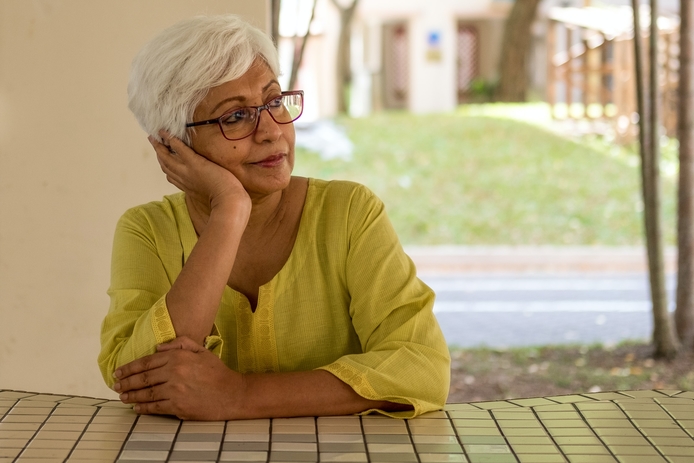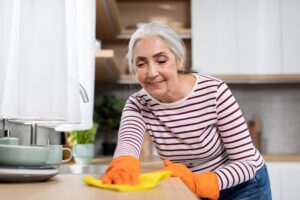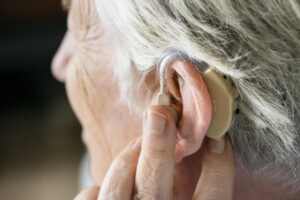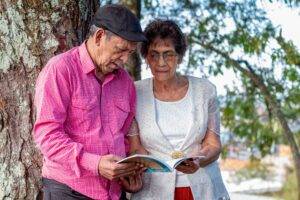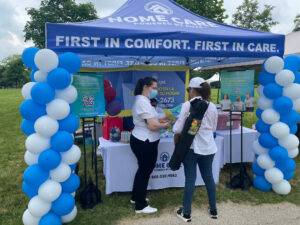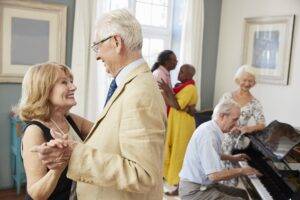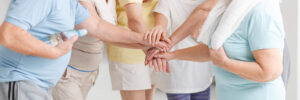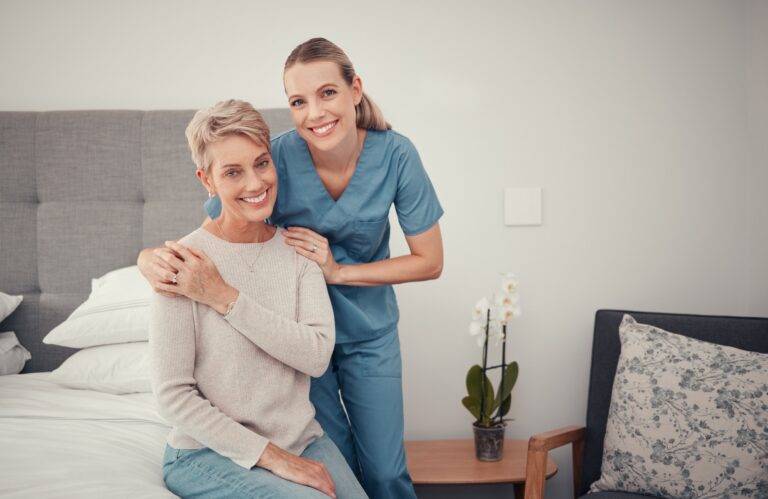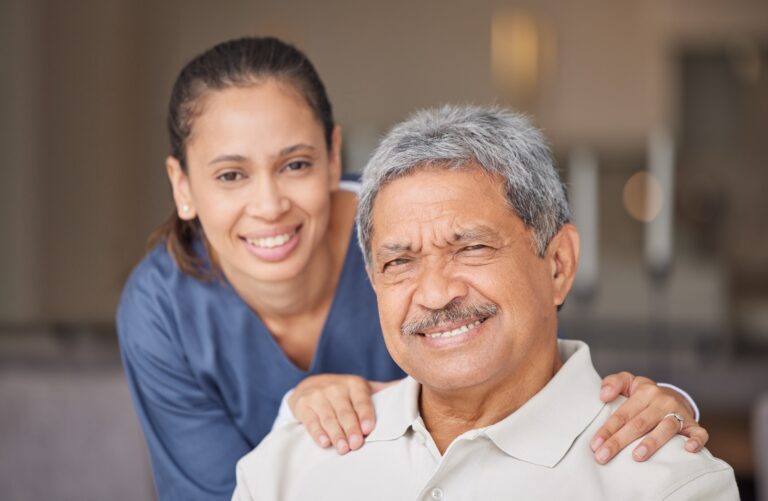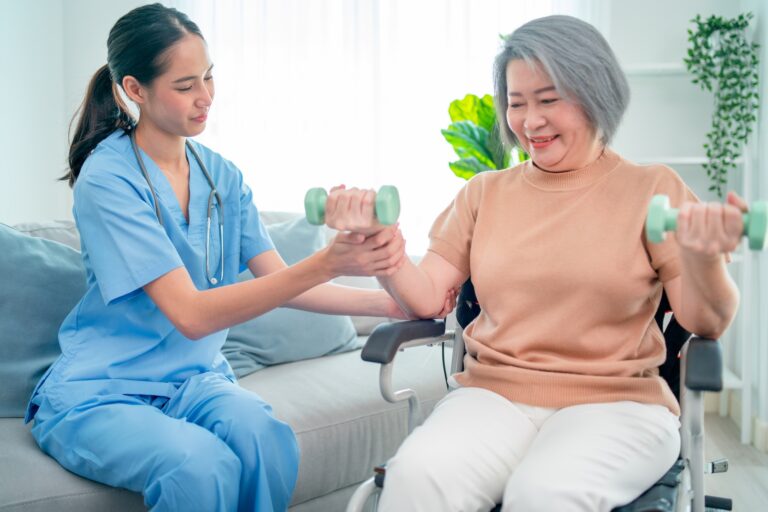While there is still much to be learned about the novel corona-virus and the elderly, there are some things we have learned for certain. By the latest confirmed count by the Centers for Disease Control and Prevention, while less than 20% of cases involve those over 65, more than 80% of deaths from COVID-19 are among elderly patients. Additionally, hospitalization rates are much higher for those over 50. Which is to say that senior citizens are at higher risk of serious illness.
The highest risk is for elderly who are cared for in a nursing home, assisted living facility or other congregate living arrangement. This is simply because there are a large number of elderly residents at increased risk in a setting where it is difficult, if not impossible, to practice proper social distancing. These settings also tend to contain more people with underlying health conditions such as heart disease, diabetes and other chronic illnesses that can suppress the immune system. Some of the worst outbreaks of COVID-19 have occurred in nursing homes and assisted living facilities. In fact, at the last point where data is available, more than a quarter of deaths from the pandemic have occurred among elderly residents in nursing homes. Given that the virus can be transmitted from a nurse or other staff member, or a visiting family member, most nursing homes have barred outsiders from visiting elderly family members in their facilities.
Because nursing homes and assisted living facilities are seeing an increased risk of COVID-19, many people may choose to stay in their homes for the duration of the COVID-19 pandemic and receive home care assistance instead.
How Home Care Agencies Can Help
Home care providers take stringent precautions to keep their clients as safe and healthy as possible. From masks and other personal protective equipment to regular health screenings, in-home caregivers go to great lengths to reduce the chances of infecting elderly clients in their care.
In addition, utilizing home care assistance to help with vital services may further reduce the risk of the spread of COVID. Those services include:
- Light Housekeeping: it’s important to perform regular cleaning especially of highly touched surfaces such as doorknobs, as well as surfaces like counter tops, light switches and tables.
- Companionship: isolation can be unhealthy, and loneliness could lead people to engage in riskier behaviors.
- Meal Preparation: grocery shopping can be a stressful and difficult challenge during the pandemic. Our in-home caregivers can assist in helping to make it safer and easier.
- Medication Reminders: when remaining at home for long periods of time, it can be difficult to keep track of time. Days may run together, leading to missed medications.
- Transportation Assistance: many medical appointments can’t be done virtually, meaning an elderly person must face a certain amount of risk to travel to the appointment. Using rideshare services or public transportation may increase that risk.
- Brain Games and Activities: staying active, both physically and mentally, has its own benefits. But during a pandemic, it is especially important to stay sharp, if only to be able to remember important details like wearing a mask and practicing social distancing.
Obviously, there is no foolproof way to live without any risk whatsoever from the coronavirus, and the elderly know that better than most. But our home care services can help reduce that risk, allowing family members some measure of peace of mind.
An Ounce of Prevention: COVID-19 Best Practices
The single best way to avoid getting sick from the coronavirus is not to be infected with it. Regardless of whether you or your loved one is in a nursing home, assisted living facility, or chooses in-home care, it is important to follow CDC guidelines for preventing the spread of the coronavirus infection. These basic measures include:
- Frequently washing your hands with soap and water for at least 20 seconds. If soap and water are not readily available, a hand sanitizer containing at least 60% alcohol may be used as a substitute.
- Maintain physical distance from others of at least 6 feet whenever possible.
- Wearing a mask or face covering in public to help block respiratory droplets.
- Cover your coughs and sneezes with a tissue, and immediately throw the tissue in the trash.
- Frequently clean and disinfect touched surfaces using soap and water, then use a household disinfectant.
- Monitor your health, and watch for symptoms like fever, cough, or shortness of breath.
The full list of prevention best practices from the CDC is available here.
Home Care Powered by AUAF Is Here To Help
Making the decision to use a home care agency instead of an assisted living or nursing home facility is never an easy one, especially in these dangerous and unprecedented conditions. That’s why we want you to know that our priority at Home Care Powered by AUAF is the health and safety of you and your elderly relatives, as well as the health and safety of our home care aides. Because they are members of our community, and often members of our own families, we understand the challenges that elderly folks are facing. If you’d like more information, or if you’d like to discuss any concerns you may have about how in-home care can help you or your elderly family member, please do not hesitate to call us at or email us: [email protected]
